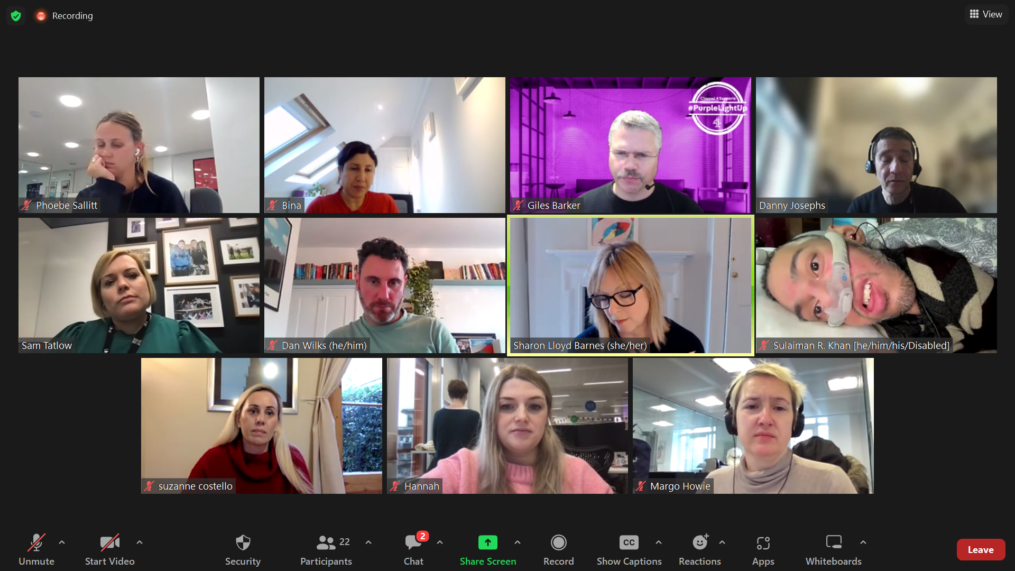Already a member? Sign in below

Today, All In held its How-To Session on Action 9: Disabled Talent, focusing on how to create an accessible workplace for talent with physical disabilities.
This action was developed in response to the results from the first All In Census, held in March 2021. Data from the census showed that:
Our stellar panel of speakers comprised Sam Tatlow MBE, Creative Diversity Partner, ITV; Giles Barker – Workplace Disability Lead, 4Inclusion and Danny Josephs, Client Partner, MFUSE & All In Physical Disability Working Group Chair.
The session was kicked off by Danny, who shared his lived experiences of the challenges he has had to overcome and what we can do to improve the workplace for physically disabled people. He strongly highlighted the importance of engaging with physically disabled people to learn about their experience in order to learn what tools are needed and what actions need to be taken to improve accessibility in the workplace. On the lack of inclusion in our industry, Danny said: ‘I have worked in the agency side of the industry for over 35 years and I have only seen 2 people in wheelchairs, that’s it. This isn’t representative or reflective of society.’
Sam shared updates on ITV’s work in the area, highlighting how they are improving their culture and how they talk about physical disability as a company. ‘We need to create a set of accessibility standards beforehand, so we can promote this culture of inclusion rather than only when someone requests it, after all, it is a legal requirement to meet the needs of our disabled colleagues which people fail to understand at times.’ – she said.
Giles explained Channel 4’s work in refurbishing their London offices in order to make them more accessible for those with physical disabilities and how they have improved the sound quality in their hybrid meeting technology so, people with physical disabilities can work easier from home and feel more included in the meeting.
The conversation also touched upon on invisible disabilities and the importance of understanding that not all disabilities can be clearly seen such as sensory disabilities. The panel discussed how both technology and training in the workplace is vital for people who struggle with working in ‘normal’ offices.
A massive thank you goes to our inspirational speakers for such an insightful How-to session and a very big thank you to all the attendees.
If you missed this session, you can watch it on demand, on our YouTube channel here.
You can also watch our previous All In Action Plan – How-to sessions from Action 1 right the way through to Action 9 here.
We will be running the All In Census again, next year, on March 15th. You can find out all about it and how to get involved here.
Already a member? Sign in below
If your company is already a member, register your email address now to be able to access our exclusive member-only content.
If your company would like to become a member, please visit our Front Foot page for more details.
Enter your email address to receive a link to reset your password
Your password needs to be at least seven characters. Mixing upper and lower case, numbers and symbols like ! " ? $ % ^ & ) will make it stronger.
If your company is already a member, register your account now to be able to access our exclusive member-only content.